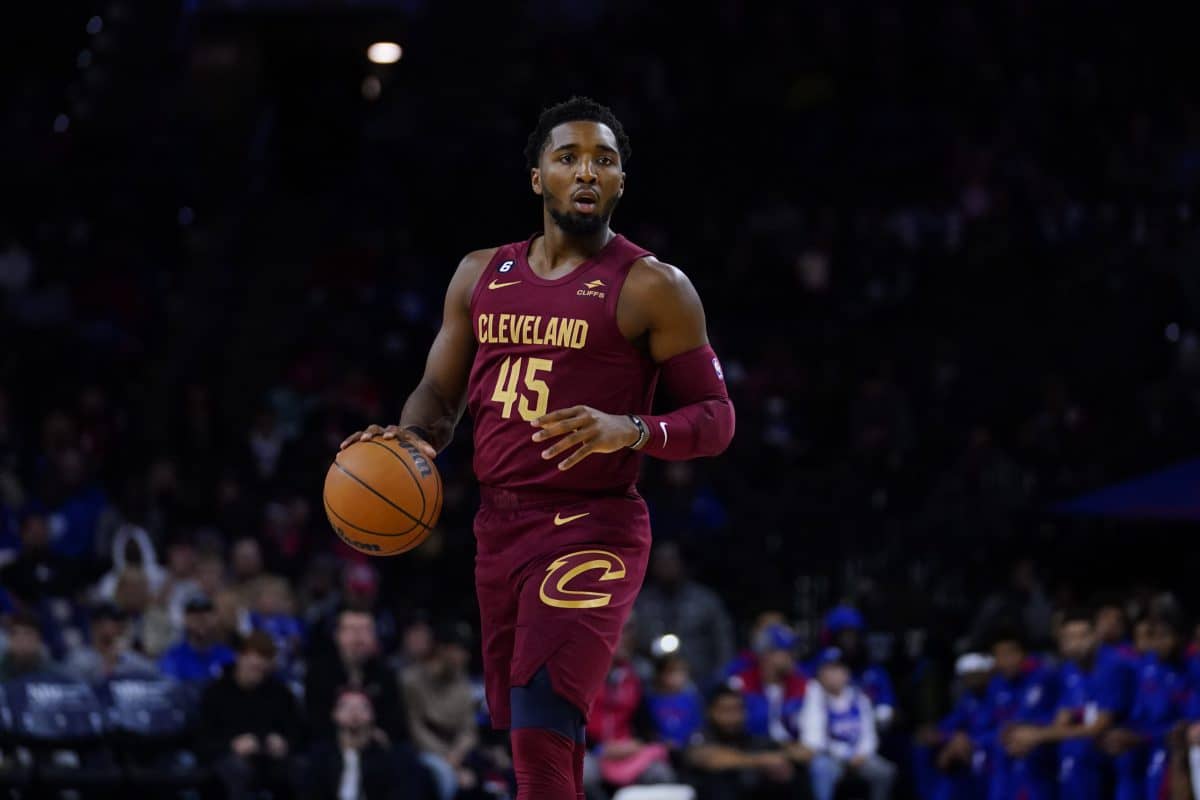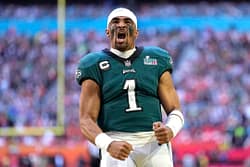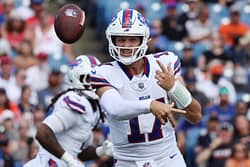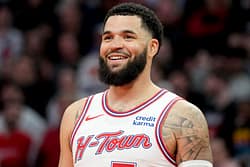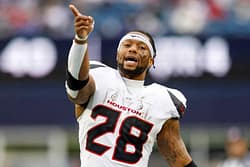Each installment of Isaiah’s Methods & Opinions (IMO) is brought to you by No House Advantage, a cutting-edge daily fantasy site that allows users to risk little and win big in over 30 states. Bet VS. THE HOUSE to win up to 21x your money or play in PICK’EM CONTESTS against other users! New players can secure up to a $100 deposit match by registering with No House Advantage today! This week’s column will focus on the significance of home and away splits — as well as the Cleveland Cavaliers.
We spent the last four weeks discussing my favorite methods for identifying a sharp ladder bet: targeting high-value matchups, studying player usage rates and using the injury report to our advantage. Today we’ll talk about home and away splits, a useful data point for both player prop and side bettors. I’ll be here every week for two installments of Isaiah’s Methods & Opinions (IMO)! You can trust me to break down the betting trends and sports news that will give you an edge on the sportsbooks.
No sports bettor can hit every bet, but the key to profitable sports gambling is to develop a successful process — or method — for identifying sharp wagers. It’s the application of sharp opinions to that method that separates the wheat from the chaff in the sports gambling world. If your priors are wrong, you’ll end up sweating more bets than you must.
This column will help bettors develop sharp methods and come to well-informed opinions.
Isaiah’s Methods: Using Home & Away Splits | Sponsored by No House Advantage
It’s common knowledge that the home team has some advantage in a given matchup. Players get to stay in the comfort of their own homes, don’t have to travel and play on a court they know well. Most will also receive the support of a loyal fanbase. But blindly betting on every home team won’t give you an advantage — sportsbooks bake home-court advantage into their lines.
Further, the significance of home-court advantage varies by team. Those with more loyal fanbases will more often benefit from their arena’s atmosphere. While not every factor that goes into home-court advantage is knowable or quantifiable, it’s possible to approximate the effect by looking at home and away splits, or the difference between how a given team or player performs at home versus on the road.
We’ll focus on numbers from the ongoing NBA season in our discussion of home and away splits, although recent notable trends from last year include the Brooklyn Nets going 9-34-1 against the spread at home (20.9%) and the Golden State Warriors going 42-11 straight up at home (79.3%). Blindly betting on those trends would have helped you make a profit.
Home teams have won more often than they have lost this season — and by a wide margin. As of Feb. 12, home teams had gone 508-346 straight up (59.5%). Of the NBA’s 30 franchises, only six have losing records on their home floor: the Orlando Magic, Los Angeles Lakers, San Antonio Spurs, Houston Rockets, Detroit Pistons and Charlotte Hornets. Unsurprisingly, those six teams are also the worst in overall record as well. Four franchises have home winning percentages of 80% or higher: the Denver Nuggets, Memphis Grizzlies, Milwaukee Bucks and Cleveland Cavaliers.
However, the sportsbooks know which teams can win more than they lose at home. They apply that insight into the spreads they set for each game. Of the four winningest home teams, none had a home cover percentage in the 80% range, and only two, the Cavaliers and Nuggets, had a home cover percentage above 65%. Of the six losingest home teams, only the Hornets, Pistons and Lakers have failed to cover at least 50% of their home games.
Home and away splits can also help player prop bettors significantly. Some players rely on home-court advantage to have big games. For example, Cleveland’s Darius Garland is averaging 24.7 points per game at home but only 18.9 points per game on the road. An inverted trend holds for his teammate, Donovan Mitchell, who is averaging 26.5 points per game at home but 27.3 points per game on the road. Bettors looking to target one of Cleveland’s guards on the player prop markets at sites like No House Advantage would be wise to consider the venue for that evening’s game.
Insight about individual players’ home and away splits should factor back into your analysis of a given game’s side markets. If the team’s best road shooter is out for an away game, that will mean more than if their best home scorer is out. For example, the information above suggests that the Cavaliers would struggle more on the road without Mitchell than Garland. Knowing the intricacies of each team’s home and away splits is a great way to get an edge on the books.
Isaiah’s Opinions: Are the Cleveland Cavaliers For Real?
OddsShopper readers know that I got action on the Cleveland Cavaliers’ future markets well before the season started. I bought the over on their win total when it sat at only 45.5 before the Donovan Mitchell trade, and Cleveland is now on pace for a 51-win season. While they’ll need to avoid the injury bug to maintain that pace, all signs point to them doing so, at least as of before the All-Star Break. But even though the Cavs are a fun team and appear likely to make the playoffs, are they for real?
The Cleveland Cavaliers play smart, deliberate team basketball under head coach J.B. Bickerstaff. They lead the NBA in defensive rating (108.9) while playing at the slowest pace (96.1). They may rank only 10th in offensive rating (114.8), but that’s enough for them to rank an impressive second in net rating (+5.9), behind only the Boston Celtics.
Cleveland’s strong numbers in advanced metrics look even more impressive over the last 15 games. The Cavaliers rank 12th in offensive rating (117.6), first in defensive rating (107.5) and first in net rating (+10.1) through that span. There is a wider gap between the first-ranked Cavaliers and the second-ranked Milwaukee Bucks (+6.7) than between the Bucks and the eighth-ranked Golden State Warriors (+3.3).
Yet despite their recent dominance, the Cavaliers have odds of only 30-1 to win the NBA Championship. They trail nine other teams, including the Bucks, Boston Celtics and Philadelphia 76ers in the betting markets. So what gives?
Cleveland’s regular-season success may not lend itself to postseason success. Playoff basketball often comes down to having the best individual player on the floor at a given time, and few would rank Donovan Mitchell ahead of Jayson Tatum, Giannis Antetokounmpo or Joel Embiid. While the Cavaliers can certainly play better defense than their rivals, that won’t matter if they can’t get on the scoreboard themselves.
Although nobody may currently rank Mitchell ahead of Tatum, Giannis or Embiid as a playoff scorer, it’s certainly worth asking whether he can do enough so that Cleveland’s defense can do the rest. The Utah Jazz’s implosion last year makes it easy to forget that Mitchell averaged 36.3 points per game in the postseason in 2019-20. He followed that up by averaging 32.3 points per game in 2020-21. If he can post numbers like those again, the Cavaliers could go on a deeper playoff run than some expect.
However, the Cavaliers will need to start playing better on the road if they want to find postseason success. They may rank an impressive fourth in home winning percentage (80%) and lead the NBA in home cover percentage (69%), but they trail six of their Eastern Conference rivals in road winning percentage (44.8%). They can get through the first round by only winning their home games, but they’re unlikely to secure a seed high enough to afford them much breathing room in either the second round or the Eastern Conference Finals.
The Cavaliers have shown a lot of grit this year. Their dominance at home and association-best defense will give them an advantage in the postseason, but that might not be enough for them to get over the hump. Still, the Cavaliers are underrated at 30-1 to win the NBA Championship, especially given Mitchell’s impressive playoff resume. His player prop markets will offer plenty of value at places like No House Advantage come playoff time.
